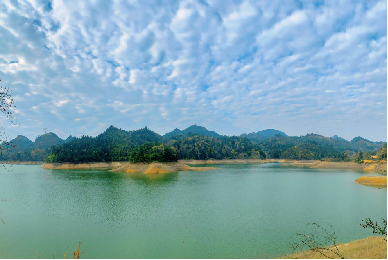

The function of wetland is multifaceted, and it is known as the "kidney of the earth" because it has so many beneficial functions.
material production
Wetland has a strong material production function, and it contains rich animal and plant resources.
Moisture regulation
Wetland plays an important role in water storage, regulating river runoff, replenishing groundwater and maintaining regional water balance. It is a natural "sponge" for water storage and flood control. Uneven precipitation can be distributed in time and space, and flood and drought disasters can be avoided through the adjustment of wetland throughput. The marsh wetland is an important part of the ecosystem with the functions of humid climate and purifying environment.
purify
The marsh wetland is like a natural filter, which helps to slow down the speed of water flow. When the water containing poisons and impurities (pesticides, domestic sewage and industrial emissions) passes through the wetland, the slow speed is conducive to the precipitation and removal of poisons and impurities. Some wetland plants can effectively absorb toxic substances in water and purify water quality. The marsh wetland can decompose and purify the environment, playing the role of "detoxification" and "detoxification", so it is known as the "kidney of the earth".
Animal habitat
The complex and diverse plant communities in the wetland provide a good habitat for wild animals, especially some rare or endangered wild animals. It is a place for birds and amphibians to breed, inhabit, migrate and overwinter. At present, there are 153 species of higher plants belonging to 122 genera and 74 families in Baping Wetland, including Ginkgo biloba, Taxus chinensis var. mairei, Cyathea spinulosa, etc. In the reservoirs, rivers and surrounding forests, 14 species of fishes belonging to 8 families in 4 orders, 5 species of amphibians belonging to 3 families in 1 order, 11 species of reptiles belonging to 6 families in 2 orders, 92 species of birds belonging to 36 families in 15 orders, and 11 species of mammals belonging to 8 families in 5 orders have been recorded. There are 92 species of birds in 36 families, 15 orders.
Atmospheric composition
Some plants in the wetland can absorb harmful gases in the air and effectively regulate the atmospheric components. The marsh can also absorb dust in the air and carry various bacteria, thus playing a role in purifying the air. The abundant plant communities in the wetland can absorb a large amount of carbon dioxide gas, release oxygen, and produce high content of negative oxygen ions. Negative oxygen ions can enhance the function and mental activity of cerebral cortex, so as to stimulate the spirit and improve work efficiency; It can also strengthen the oxidation process of brain tissue, enable brain tissue to obtain more oxygen, improve the function of cerebral cortex, excite parasympathetic nervous system, thus improving long-term insomnia, depression, neurasthenia and other diseases; The inhalation of negative oxygen ions is also conducive to ensuring and maintaining the physiological functions of the zang fu organs, promoting the stability of the internal environment of the body, thus speeding up wound healing; Enhance lung function, and improve the condition of patients with decreased lung function; It can make the oxygen molecules in the air more active, make them more easily absorbed by the human body, and prevent or improve air conditioning diseases.